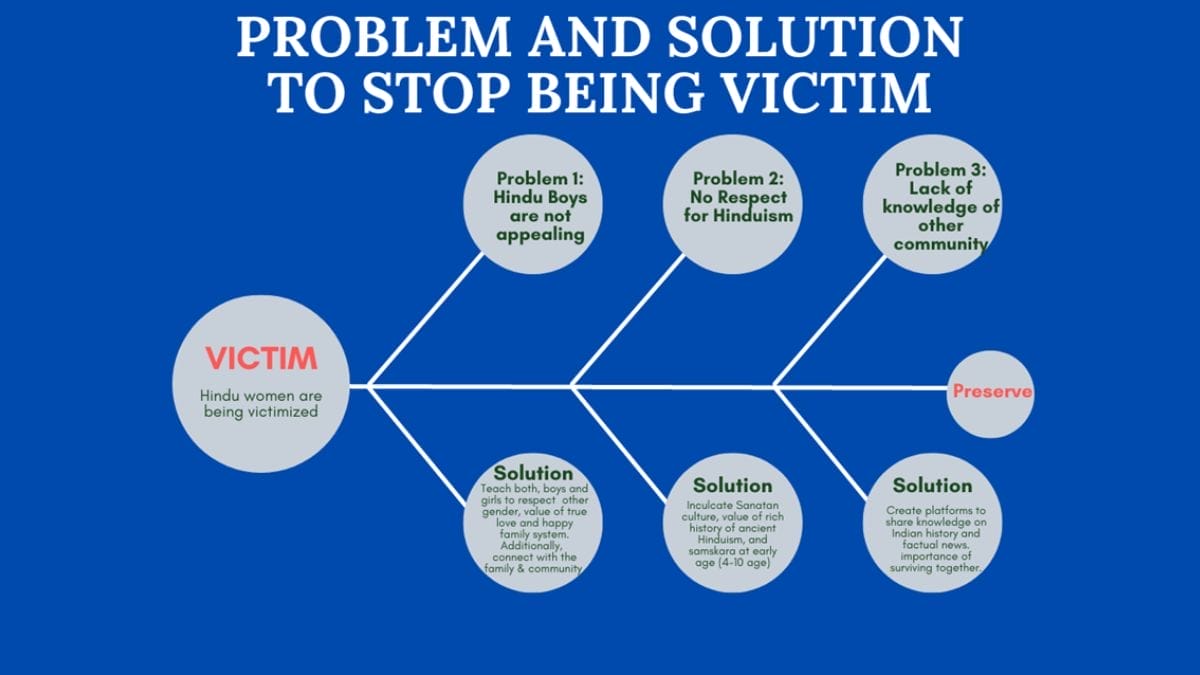Why is it essential to rebuild the family system and community?
After reading the gruesome crime of killing Shradha, and her father’s statement, it made me think it is not an isolated event; we need to study and deal with it systematically.
Instead of what happened, let us focus on why this is happening. Why are so many Hindu women and men said to be victims of extremism? How can we stop this? Is there a way?
While searching for why I needed to do the root cause analysis to get to the roots of this issue.
The value of parenting:
There is a need to understand the value of parenting and the value of grandparenting. Additionally, the value of community parenting is to create a support system. There was a support system where we could share something we couldn’t with our parents. Grandparents and the elderly would teach the traditional values, customs, religious beliefs, kindness, belongingness to the family, the value of acceptance of diverse views within the family and the power of forgiveness. All these worked as a glue to keep the family together and helped preserve and pass on the rich traditions.
In the modern era or since the last thirty years, proving ‘self-worth’ has become so important that everyone is sacrificing everything, including their self-worth and the importance of family. All this is for stepping out to enjoy freedom and equality.
This freedom is primarily connected or associated with the freedom of making decisions, such as choosing a spouse and choosing what to wear or buy. Fashion has hijacked the actual worth of women, irrespective of working women, stay-at-home moms, or even grandparents. The concept of freedom is mostly misunderstood.
Even some men prefer a ‘smart wife’ over homemakers as they feel peer pressured. With these expectations, women are expected to pay more attention to their careers and themselves, leaving less time for children and families.
Only if we as parents teach the value of a stay-at-home mother at a young age will the child grow up valuing their wife and treating her equally.

Value of Grandparenting: Earlier, only the daughter-in-law wanted a nuclear family; now, sons also prefer a family without parents as they feel parents would ‘interfere’ in their spending decisions, family values and parenting preferences etc.
In the case of working parents, where a couple has no time to invest in parenting, they can opt to stay with their parents. They underestimate that real parenting is tough, and even stay-at-home mothers feel exhausted by babies with their constant attention during the first two years. After that, the child needs intellectual, emotional and spiritual simulations. Most pre-primary schools offer only intellectual simulations and dynamic simulations to some extent.
Grandparents help build an emotional base for the child due to their availability to deal with the child emotionally, wisely, and patiently.
This strong foundation will help the children connect with family during their highs and lows and crises. All this is possible only if we spend time with the children. Instead of spending, it is investing time in teaching and passing on traditional knowledge and values. So, it’s three parenting Ts – Time, Teaching, and Tradition. While doing so, remember to follow them first, as children observe what we do.
If a family survives, the community will survive, and ultimately society will survive. Today, Hindus or Sanatanis are the nuclei in terms of the community.
The Value of Community Living:
Unlike Christians, Sikhs, Muslims etc., Hindus do not have community support. The most illustrious example in Hong Kong is Khalsa Saheb, who rebuilt a magnificent Gurdwara with donations from devotees.
We have not paid attention to building community centres; the most important community centre is the temple. Connecting with temples by visiting temples to celebrate festivals and other events is easy.
Many modern temples may be unable to accommodate the growing Hindu population within the locality. For that, I urge every Hindu to donate 10% of their earnings to the temples so that temples can build infrastructure for the devotees. Temples can organise sermons, and bhajans, celebrate festivals and do seva for the needy. They can also organise get-togethers to teach ancient knowledge and encourage devotees to adapt the learning to real life. We must involve our kids from a young age, so they adapt to the environment and education and evolve their thinking around this.
Lastly, my take on this is this problem of parenting and building society is only possible when we bring back the temple system where communities are built around a spiritual atmosphere and build a social connection among families that grow on emotional, economical, educational, spiritual support for each member of the family as a friend or mentor within the circle.
With this concept, we can save our future generations and thrive together.




